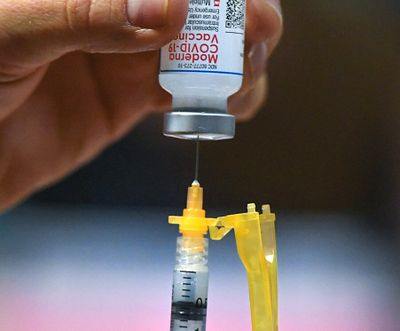Should the city of Spokane launch a COVID-19 clinic for its employees?

City leaders are weighing whether Spokane should take a leading role in vaccinating its employees.
Some Spokane City Council members are pushing city officials to develop a plan to vaccinate the city’s workforce, which amounts to more than 2,000 people.
But administrators say it might not be necessary for City Hall to embark on its own vaccination effort. The main obstacles to vaccination right now, they argue, is the availability of vaccine doses – a factor that remains outside of local control – and individual eligibility under the state’s guidelines.
The council discussed vaccinations at a meeting of its Finance and Administration Committee on Monday. It raised questions about whether the city has an obligation to launch its own vaccination clinic for employees or defer to the community institutions with existing vaccine plans.
“If our infrastructure in our community through SRHD and our partners is working well, then there is really a duplicative effort for us to take that on if there is not a large burden of need,” said Sarah Nuss, the city’s emergency management director.
But Councilwoman Candace Mumm expressed concern about a vaccination strategy that requires individual city employees to secure an appointment at their health care provider or a mass vaccination site.
“I would just like to see more leadership at the city, because we certainly could do it for the flu vaccine,” Mumm said. “I would like to see us also do it for the COVID vaccine.”
But at this point, the city is taking its leadership cues on workforce vaccination from the Spokane Regional Health District, city spokesman Brian Coddington told The Spokesman-Review on Tuesday.
Kelli Hawkins, a health district spokesperson, said “the most ideal time for these efforts depends on multiple factors,” including employee eligibility.
“Collaboration between employers and providers is one of many ways that we can quickly vaccinate those eligible now, and move forward to vaccinating more and more of the population,” Hawkins said. “Vaccination clinics with large employers would free up other community sites to vaccinate those who don’t have easy access to the vaccine.”
Councilwoman Betsy Wilkerson asked if the city had data on how many of its employees have already received the vaccine.
It does not, according to Human Resources Director Amber Richards. But the city has used data – such as employee age – that help it gauge who might be eligible for the vaccine and “to see (if) would it be a value to invest our staff resources in standing up some kind of a clinic internally,” Richards said.
“I think there are some nuances between maybe this and the flu shot, where essentially everyone in the city is eligible for the flu shot,” Richards said, adding there might also be more apprehension among employees to receive the COVID-19 vaccine in comparison to the annual flu vaccine the city offers.
Public safety personnel, including firefighters and police officers, were among the first to be eligible for the vaccine. The Spokane Regional Health District and the Spokane County EMS and Trauma Care Council held a special clinic for first responders in January.
At its completion, the city reported that 52% of fire department employees had elected to receive the vaccine.
Joe Cavanaugh, president of Local 270, said several of the union’s members have asked him whether or not the city was going to establish its own vaccine clinic. When he asked a few weeks ago, Cavanaugh said city officials told him they had not actively looked into it because there was concern about how the doses would be procured.
“There’s an interest of the membership. We haven’t pushed it, we’ve just inquired,” said Cavanaugh, who represents Local 270’s roughly 1,000 members, the largest union in the city.
The city must also weigh whether its own clinic would pull resources away from existing vaccination efforts.
Councilwoman Karen Stratton was hesitant to endorse any strategy that would disrupt vaccination of the elderly, teachers, and other demographics currently eligible.
“I don’t want us to compete with the population out there that still needs the vaccine,” Stratton said.
Stratton hasn’t yet received the vaccine, but has had COVID-19 and described it as “a terrible thing to go through.”
“But I’m willing to step back and just wait until those people, that are in a lot worse position than I am, get that shot,” Stratton said.
If the city does procure doses, they would not come from the health district.
“We focus our vaccination efforts on helping those who are vulnerable, those who need help with accessibility, and those who have been disproportionately affected by the pandemic,” Hawkins wrote. “Whichever provider they select to help with the clinic would use their supply.”
Mumm asked for a plan and suggested that COVID-19 relief funding could be appropriated to pay for the vaccination effort.
“Maybe there aren’t that many people that are eligible in the city, and maybe you’ve already done the analytics on that, but that seems to be changing almost on a weekly basis,” Mumm said.
Councilwoman Lori Kinnear advocated that the city broaden its vaccine education efforts beyond just its own employees.
“People are asking us and looking to us to offer them solutions so it’s not so much of a scramble on where to get vaccinated when to get vaccinated, if they are eligible,” Kinnear said. “Weekly updates are absolutely vital because things are changing really, really quickly.”